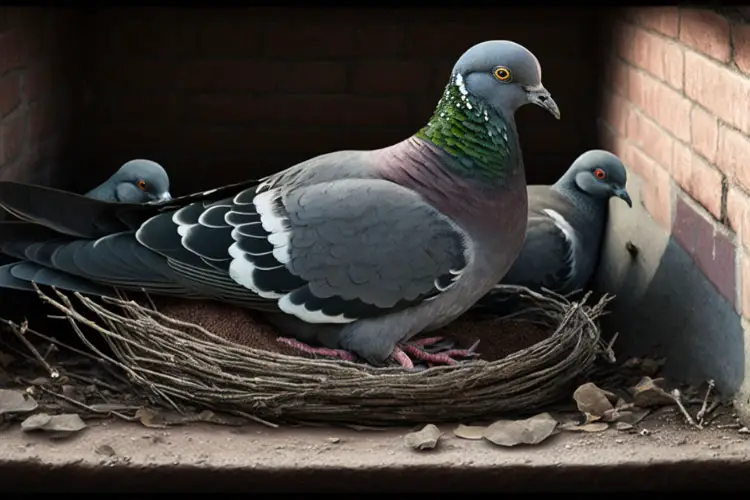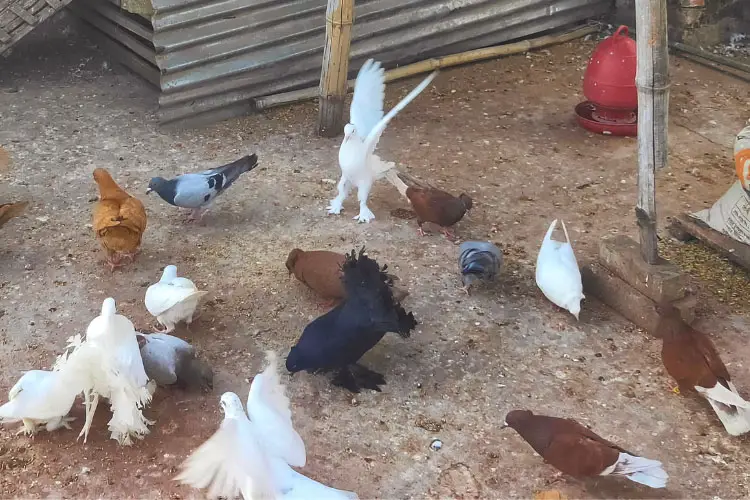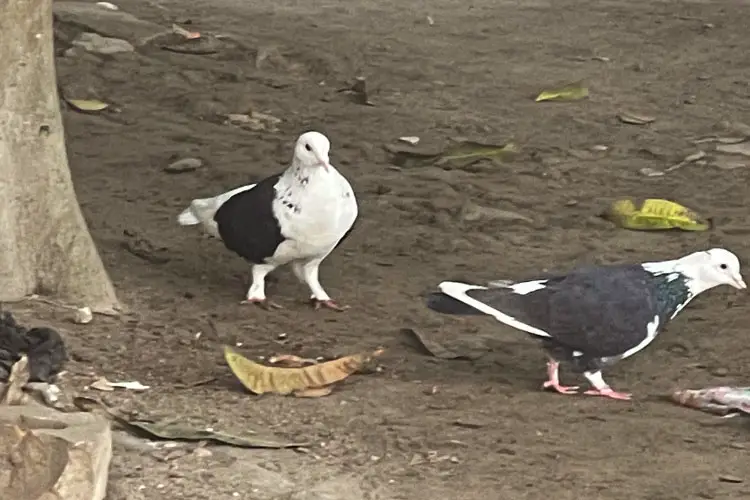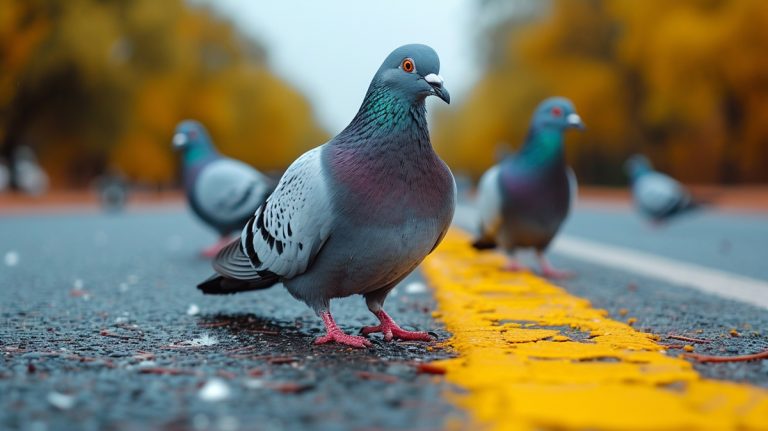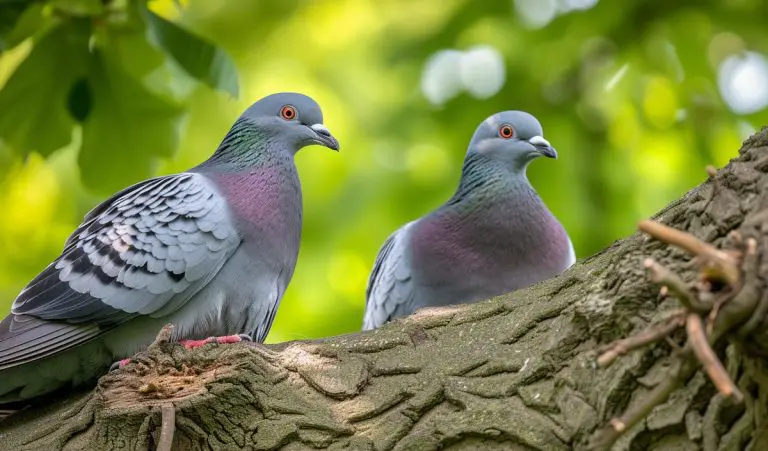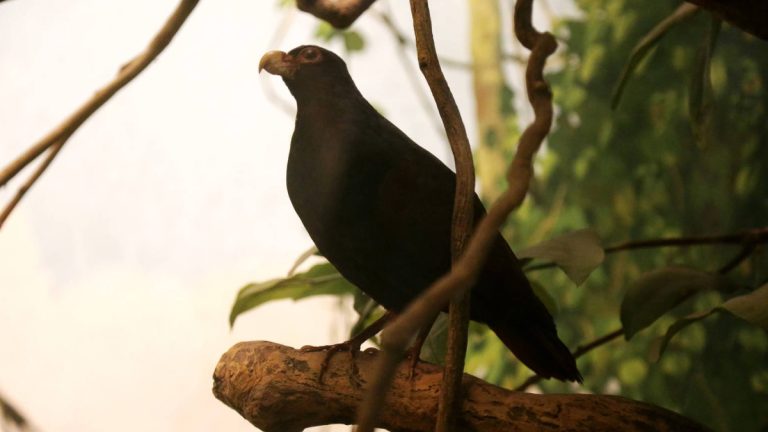Why Do Pigeons Abandon Their Eggs: The True Facts
Abandoning eggs is a survival strategy and a common occurrence for pigeons. However, there’s no need for concern, as it’s a part of their natural behavior and is influenced by many factors.
So, why do pigeons abandon their eggs? The prime reasons for this behavior are feeling threatened, insufficient resources, poor health or injury, unfavorable nest conditions, and infertility or failure of the eggs to hatch.
However, there’s more to this scenario. Keep reading to get a better understanding of pigeon eggs and the reasons for their abandonment.
Why Do Pigeons Abandon Their Eggs?
Even though it may seem illogical and even harsh for pigeons to abandon their eggs, there are concrete reasons behind it. The prime reasons why pigeons are forced to leave their eggs alone are:
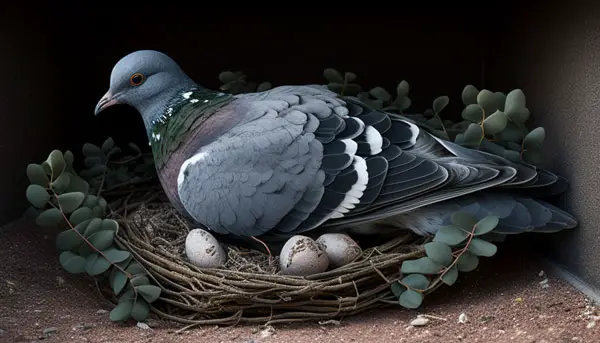
Unsafe Predatory Environment
Like many other animals, pigeons have a strong instinct to protect themselves and their offspring. If a pigeon senses its nest or eggs are in danger, it may abandon them to escape the threat and ensure its survival.
This behavior is a survival mechanism that has evolved to help pigeons and their offspring.
By abandoning its nest or eggs, a pigeon can quickly escape a predator or other hazard and seek a safer location to build a new nest and lay new eggs.
Insufficient Food Resources
The availability of resources such as food and water is crucial for the survival of pigeons and their offspring. If pigeons are unable to find sufficient food or water, they may abandon their eggs in shortage of these resources.
Without adequate resources, they’re forced to abandon the eggs to look for food and water.
Poor Health Of Parent Pigeon
The health and well-being of pigeons can play a significant role in their ability to care for their eggs. If a pigeon suffers from poor health or injury, it can’t adequately incubate and care for its eggs.
Such poor health conditions often lead to egg abandonment, as the pigeon may prioritize its survival over the survival of its eggs.
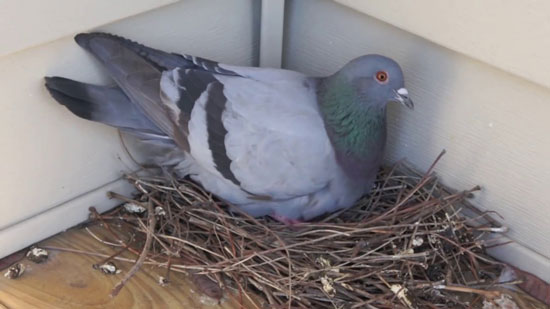
To care for its eggs, a pigeon needs to maintain a consistent body temperature, turn the eggs regularly, and provide them with proper nutrition.
If a pigeon is suffering from poor health or injury, it’s unable to fulfill these responsibilities, leading to a higher risk of egg abandonment.
Unfavorable Nest Conditions
The condition of a pigeon’s nest can significantly impact its ability to care for its eggs properly. If the nest is unhygienic or unstable, it creates an unfavorable environment for the eggs, leading to an increased likelihood of egg abandonment.
Moreover, a filthy nest creates a risk of disease or other health issues for the eggs, making it more difficult for the pigeon to look after them.
In such cases, the pigeon abandons its eggs in search of a better location to lay them. By doing so, it seeks to improve the chances of its eggs hatching and their survival.
Infertile Eggs
Infertility or a failure of eggs to hatch is one of the major causes of why pigeons forsake their eggs. If the eggs are infertile, they won’t develop into viable chicks, even if they are adequately incubated.
In this case, the pigeon may abandon the eggs and try to lay new eggs in a different location. And that will allow the pigeon to conserve its energy and resources for a new breeding attempt. Thus, it improves its chances of producing healthy chicks.
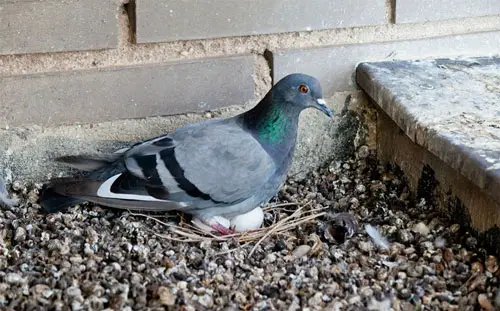
In either case, infertility or a failure of eggs to hatch can lead to a lack of success in breeding. And cause pigeons to desert their eggs in hopes of increasing the survival rate of their offspring.
By doing so, the pigeon may improve its chances of future success in the breeding process and increase the survival of its offspring.
Rotten Eggs
Rotten eggs can be a significant problem for pigeons, particularly during the summer. High temperatures and humidity cause eggs to spoil more quickly, leading to a higher risk of disease and infection.
Likewise, if the nest is contaminated with rotting eggs, it will create an unfavorable environment for future eggs and chicks.
In such conditions, pigeons may abandon their eggs if they sense the eggs are no longer viable. By removing spoiled eggs from the nest, pigeons reduce the risk of disease as well as create space for new, fertile eggs.
What’s The Hatching Time for Pigeon Eggs?
The hatching time for pigeon eggs is approximately 17-19 days. Pigeons can generally incubate their eggs for the entire incubation period, and both male and female pigeons will take turns incubating the eggs and caring for the chicks.
Incubation is an integral part of the breeding process, as it helps to ensure that the eggs are treated well and protected from environmental stressors and predators.
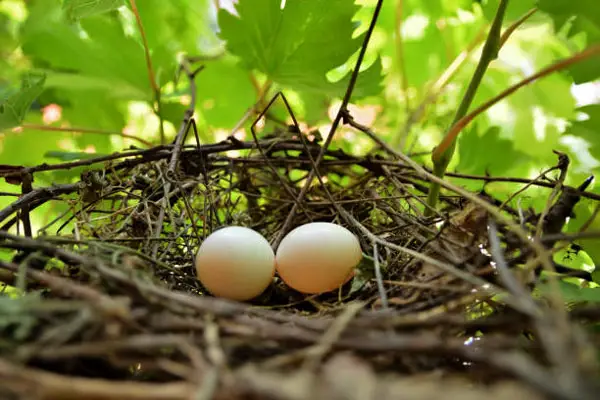
After hatching, pigeons feed their young offspring a mixture of seeds and other nutrient-rich digestive juices. This food source helps the chicks to grow and develop rapidly so they can fly and forage for food on their own after a few weeks.
Is It Safe for Pigeons to Abandon Their Eggs?
Yes. But it depends on several factors, including the reasons for abandonment and the environmental conditions at the time.
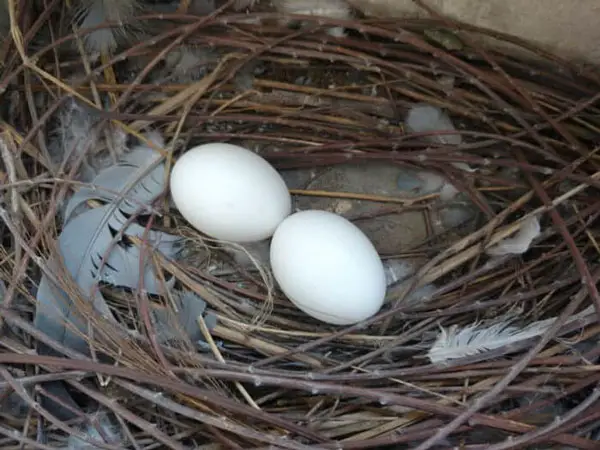
- The most common reason for abandonment is egg infertility. If your pet or neighborhood pigeons does so, leave it be.
- Another reason for desertion is if the eggs become rotten. In both cases, abandonment doesn’t pose any threat to both.
- The eggs may be in danger for other reasons like shortage of food resources or threat of surroundings.
If you find any eggs left alone for such reasons, you may take them and care for them.
How Do Pigeons Determine Which Eggs to Hatch And Which to Abandon?
The exact process for egg abandonment is yet to be well understood. Still, it’s considered to be related to the quality of the eggs and the resources available to the pigeon.
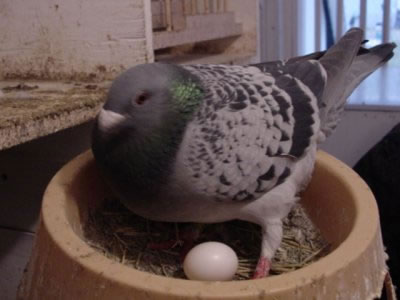
- Pigeons are known to abandon eggs that are infertile or have failed to hatch,
- Eggs that have become dirty or unstable due to unfavorable nest conditions.
- If the pigeon is in poor health or injured, it may also abandon its eggs due to a lack of energy or ability to care for them.
- In some cases, pigeons may also abandon eggs to preserve resources, such as food and energy, if the environment is harsh or the pigeon cannot find adequate help.
Overall, the decision to abandon eggs is a complex and dynamic process that’s influenced by various factors mentioned above.
How Do Pigeons Care for Their Eggs And Chicks?
Pigeons care for their eggs and chicks by providing them with a warm and safe environment, food, and protection.
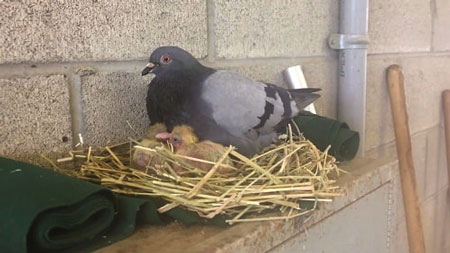
- Both male and female pigeons will incubate the eggs, taking turns to keep them at a consistent temperature and humidity level.
- They also clean the eggs and the nest to prevent any contamination or build-up of bacteria that could harm the eggs or chicks.
- Once the eggs hatch, both parents continue to care for the chicks by feeding them seeds and other digestive juices that are rich in nutrients.
- In addition to providing food, both parents protect the chicks from potential predators and environmental stressors.
Altogether, pigeon parenting is a complex and demanding process that requires a significant investment of both parents’ time, energy, and resources.
Pigeons are fascinating birds, and while they are known for their loyalty and devotion to their mates, there are times when they may abandon their eggs. If you’re curious about this behavior, you may also be wondering why pigeons keep coming back to your house window. Our article on why pigeons keep coming back to your house window explores some of the factors that can attract these birds to your home. Additionally, if you’re looking for ways to get rid of pigeons from your roof or balcony, we have an article that can help. Our guide on how to get rid of pigeons from your roof and balcony provides some practical tips for deterring these birds from roosting in these areas. By reading these articles, you can gain a better understanding of pigeon behavior and learn how to coexist peacefully with these birds.FAQs
Read this section for further information on pigeons abandoning their eggs.
If you have found an abandoned pigeon egg, you can try to hatch it by inducing incubation and turning it over several times. Monitor the humidity and regulate the temperature carefully.
Keep in mind that hatching an abandoned pigeon egg is difficult, as it’s often not feasible to mimic the exact conditions a pigeon would provide.
Pigeon eggs can survive up to 3 to 4 days without heating or incubation. However, if the surrounding temperatures are relatively warm, it can last up to seven days.
Pigeon birth control is safe when used correctly and under the guidance of a wildlife expert or veterinarian. Mix the birth control medicine with the bird feed and feed it to your pigeons. Egg oiling and egg replacement are also effective contraceptive methods.
Final Words
In conclusion, the pigeons’ abandonment of eggs can be caused due to various reasons, including infertility, failure of the eggs to hatch, poor health or injury, unfavorable nest conditions, and a lack of resources.
Regardless of the cause, it’s important to understand and respect the natural behaviors of pigeons and other wildlife in order to preserve their populations and ecosystems.
Understanding why pigeons abandon their eggs is vital for their well-being and for improving their chances of successfully raising their offspring.
